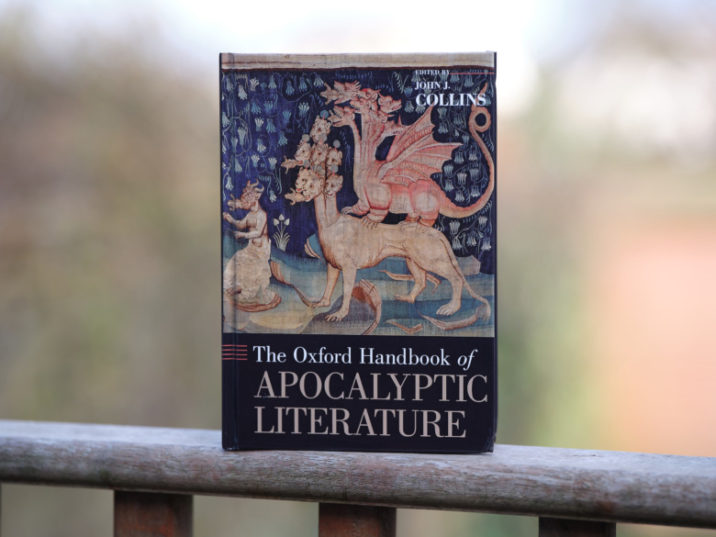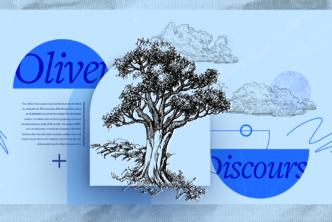The Oxford University Press Handbooks are renowned as go-to volumes for students and scholars alike when embarking on research in new topics, or for seasoned scholars who desire efficiency when seeking to grasp the essential bibliographies for any number of issues within biblical and religious studies.
Over the next few weeks, the Academic Blog will publish a series of interviews with the editors of a number of the OUP Handbooks, which have just been made available for pre-order on Logos.
Our first interviewee is John J. Collins, Holmes Professor of Old Testament Criticism and Interpretation at Yale University, who is the editor of the OUP Handbook on Apocalyptic Literature.
What is special about the OUP Handbooks, and why should students and scholars use them in their research?
OUP Handbooks give comprehensive up to date overviews of a field. There are no better guides to the state of scholarship.

Tell us what you wished to accomplish as editor of The Oxford Handbook of Apocalyptic Literature and how you think that was achieved.
I wanted to gather together the new insights that have emerged in the last twenty years or so. Some of this was a matter of updating debates, e.g. on genre. Some was a matter of incorporating areas of interest that have emerged in that time. For example, there was a wave of “empire studies” in the humanities, beginning in the 1990’s, and apocalyptic literature is very relevant to this.
I also wanted to include a section on modern apocalypticism, which had a big upsurge around the year 2000, and has been a subject of great interest because of the apocalyptic dimension of political extremism.
I think the volume covers these issues well. It is limited to Judaism and Christianity. We were supposed to get an essay on apocalypticism in Islam, but the contributor had to withdraw. That was my main regret about the volume.

For readers unfamiliar with your work, can you tell us about your background and how that prepared you for the role of editor of the Handbook?
I have been working on apocalyptic literature throughout my career. In 1979 I edited a volume of the journal Semeia that attempted to define the genre apocalypse, and that volume has been a touchstone ever since. I followed this with a study of Jewish apocalyptic literature, called The Apocalyptic Imagination, which has been through three editions and is widely used as a textbook. I also edited a three-volume Encyclopedia of Apocalypticism with Bernard McGinn and Stephen Stein, in 1998, which is more comprehensive than the Oxford Handbook, because it includes Persian and Islamic material and also the Christian Middle Ages.

What distinguishes the collection of essays in the Handbook from other collections of essays on Apocalyptic literature?
The Handbook is a comprehensive treatment of apocalyptic literature in Judaism and Christianity in antiquity, and its modern reception. It is thematic. There are sections on literary features, social function, theology, and popular culture. It is not a book-by-book analysis, but discusses features of this kind of literature in a comprehensive way.

Can you briefly walk us through the five sections into which the Handbook is divided?
The volume begins with an essay by myself on what constitutes apocalyptic literature. Section 1, the literary and phenomenological context, discusses the relation of apocalypticism to other kinds of literature in the Bible and parabiblical literature – prophecy, wisdom, Jewish mysticism etc.
Section 2 is devoted to the social function of apocalyptic literature, with essays on social scientific method, empire, and postcolonialism. Section 3 has three essays on apocalyptic rhetoric.
Section 4, on Apocalyptic Theology, is the longest section. It deals with the main ideas one finds in apocalyptic literature, such as determinism, dualism, journeys to heaven and hell, and apocalyptic ethics. It includes some historical essays on the relation of apocalypticism to the Jewish Law, and its role in Christian origins and in later movements, Gnosticism and Manicheanism.
The final section, Apocalypse Now, has six essays on apocalypticism in modern Judaism and Christianity, its role in radicalism and its relation to violence, the role of trauma in generating apocalyptic ideas and a general essay on apocalypticism in modern culture.

What are some of the advantages you see for readers to have the Handbook available digitally in Logos?
Many people nowadays prefer digital editions to print. The shift in that direction was accelerated by the Covid crisis, since it is now more difficult to use libraries. Digital editions can be accessed by a click of a button.
Finally, which project(s) of yours should we look out for in the coming years that also deal with Apocalyptic literature?
Together with Loren Stuckenbruck of Munich and Tobias Nicklas of Regensburg I am editing a new edition of Jewish and Christian apocalyptic literature in English translation. It should appear in about three years, from Yale University Press.

Apocalyptic Literature is now available for pre-order on Logos, just one of a fantastic lineup of individual volumes from the Oxford University Press Handbooks series.
In addition, Logos is offering two exclusive collections of volumes from the OUP Handbook series, at special pre-order pricing:
The Oxford Handbooks Biblical Studies Collection (8 vols.)
The Oxford Handbooks Religion Collection (26 vols.)
Take advantage of these special offers now, before the pre-order window closes.








